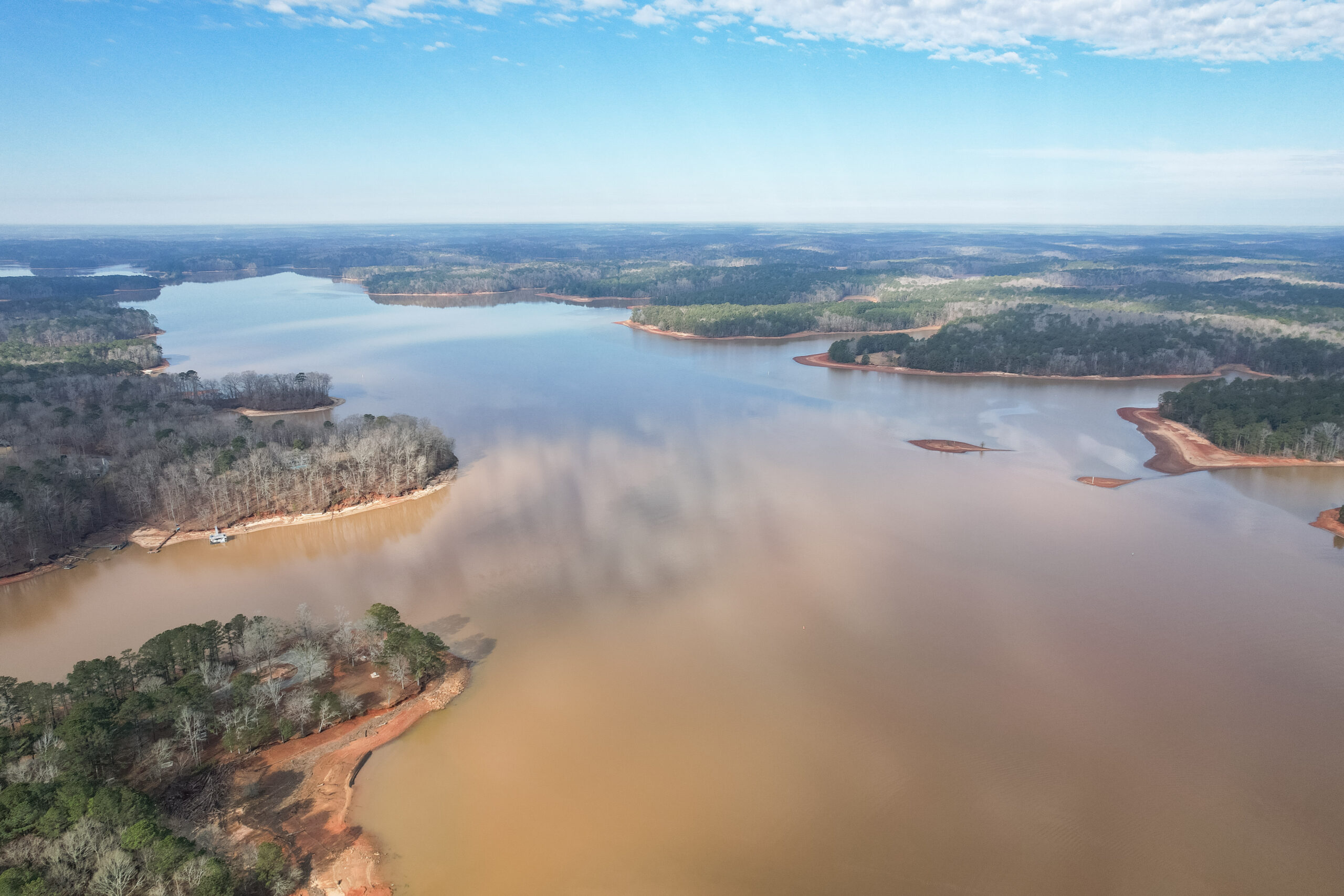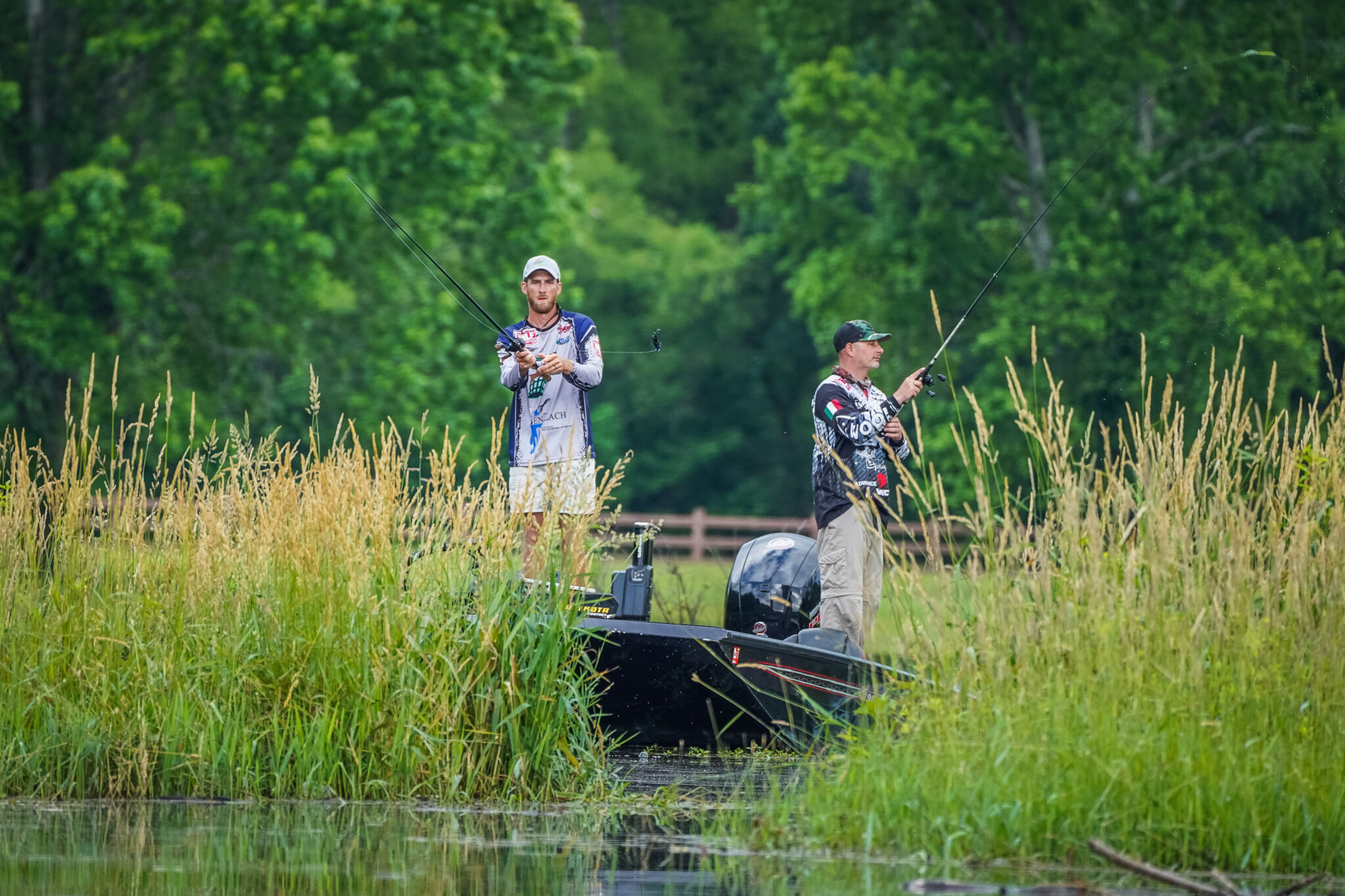2024 Tackle Warehouse Invitationals preview: West Point Lake

LaGRANGE, Ga. – After starting at Sam Rayburn in Texas, where double-digits dwell and 20-pound bags come standard, the Tackle Warehouse Invitationals season heads to the Georgia/Alabama border for a much different event. Stop 2 Presented by Suzuki on West Point Lake puts the Invitationals anglers on a fishery that is a stranger to national competition and has all the ingredients for a fascinating and tightly-contested tournament.
West Point Lake
LaGrange, Georgia
March 1-3, 2024
Hosted by Visit LaGrange
About the fishery
Covering about 35 miles of the Chattahoochee River, West Point Lake was first flooded in 1975 and is nearly 26,000 surface acres. Though good-sized by many standards, it is easily the smallest lake on the schedule this year, as Lake Eufaula rings in at 45,000 acres and is the second-smallest fishery the Invitationals anglers will have to break down.
Lake Lanier is the next lake up the Chattahoochee from West Point. That means that the weather in Atlanta is worth watching, as rains there or at points north will send more water down the river to West Point. Almost immediately below West Point is Lake Harding, which is part of a string of smaller reservoirs on the Chattahoochee before it hits the bass factories of Eufaula and Seminole.
Though there are some similarities between West Point and other fisheries, it is set apart from the usual suspects when it comes to high-level tournament competition. Some compare it to the more riverine portions of Clarks Hill, or Hartwell, or “Eufaula without largemouth” or “Logan Martin without big spots.” Basically, the anglers are going to be dealing with a fishery with little to no grass, not a ton of current, and plenty of rock, clay, wood and brush to target.
As for the species mix, the lake is home to largemouth and a mix of other genetics. Spotted bass started showing up in the Chattahoochee system in the 1950s, with Alabama bass showing up in the 1970s around Lanier. According to Steve Sammons of Auburn University, there are pure largemouth and a few shoal bass in the system, but basically everything that an angler might call a “spotted bass” is actually some mix between spots, Alabama bass and maybe something else. So, when you’re tuned in to MLFNOW! and someone boats a “big ol’ spot,” know that is likely not a perfect description of the specimen.
Last time
For this event, there isn’t a lot of history, but there is some that might be extremely relevant. In 2023, there was a Phoenix Bass Fishing League event held at almost the same time, which was won with 20 pounds by David McClung. According to the press release, he caught his fish on a crankbait and a jig in stained water – which could prove to be prophetic. Notably, Blake Tomlin finished third in that event and is signed up for the Invitational. As for weights, 10-7 got the last check, and 12-9 put Cory Mathis in 10th place – West Point is unlikely to be a slugfest.
Before last spring, you need to go back to 2013 to find another BFL on the lake – a fall Wild Card won by Bobby Padgett with 21-15 for two days. To find a big event, you need to track back to the 2006 Stren Series event won by Terry Tucker. Over four days (the final round was two days with zeroed weights), Tucker bagged 48-8 to beat out runner-up Ott DeFoe. Though DeFoe sacked up 21 pounds on Day 2 of that event, he only caught one bass on Day 1, and the fishing appears to have been super tough overall.

What to expect this time
Hailing from nearby Macon, Georgia, Bass Pro Tour pro Josh Weaver grew up fishing club tournaments on West Point and thinks we’re in for a good one.
“The lake is definitely coming back around,” Weaver said. “I’m glad to see a big tournament going there because there has been nothing there for a long time. The time of year they’re going is going to be the best time to showcase that lake.”
According to Weaver, this event could have some old-school flair.
“You can kind of do whatever you want,” Weaver said. “You can go out deep and chase the ones that haven’t come in yet — with spots there are always fish deep — but I think it will be won shallow in one of the creeks – cranking, or by somebody that finds some good brush piles.
“If we get some mild days, I feel like there will be more coming to the bank than there are out deep,” he said. “Regardless, a lot of those fish live shallow year-round, especially the largemouth – I’ve gone over there in January and been able to catch ‘em crankin’.”
These days, there aren’t many events where forward-facing sonar doesn’t play big. Weaver thinks, or hopes, that due to the makeup of the fishery, anglers might need to fish shallow to target winning quality fish.
“If I was going over there, I would literally have all crankbaits on the deck,” he said. “But, with that being said, I know a bunch of guys that love to go over and fish brush. Obviously, forward-facing sonar is changing the game – with no big tournament to expose anything, Drew Gill or somebody could make it a little different. I hope it isn’t won doing that, I hope it’s won cranking. I really think with the five-fish format, a guy can compete cranking, even if there are fish to be caught ‘Scopin’.”
Weaver’s theory on the event is that cranking for fish transitioning back to spawn will be super key, but there are a few potential wild cards.
“John Cox always says the biggest fish in the lake spawn first,” he said. “If we get some warm days, you could see some fish spawning. I remember, Barron Adams caught an 8-pounder the first day off a bed on Martin. So, I think you could see some caught.”
The other oddball pattern might be a river run.
“You’ll see some people do good running up there, because of the time of year, the fish are pushing up there,” Weaver said. “Like Ron Nelson at Clarks Hill last year, he ran way the hell up where nobody ever fishes and was smoking them.”
Figuring on a little over 17 pounds a day to win, Weaver thinks that mixed bags of Alabama/spotted bass and largemouth are almost a certainty.
“Regardless of what you’re fishing for, you’re gonna have a mixed bag, just because the spots are so prevalent,” he said. “But there are some big largemouth. That time of year, there will be some 6- to 8-pounders. You’ll see some 14- to 16-pound bags of spots, but I don’t think you’ll see somebody just fishing for spots catch all spots.”
Species aside, there’s a chance we’re in for a fun tournament, one where shaky heads replace jighead minnows on deck and crankbaits, spinnerbaits and vibrating jigs get a chance to shine.
“I love the next month and a half of fishing, you can compete up shallow,” Weaver said. “I definitely think LiveScope will not be dominant in the event, especially in a five-fish format. There will definitely be guys in the Invitationals field trying to ‘Scope, but I think it will be won by someone who finds fish moving back and follows them back. A lot of the year, fishing shallow, you burn up your fish. This time of year, you’ve constantly got new fish moving that direction. If you have five or 10 places you’re hitting, those places are going to reload every day. I think someone could have five or 10 places, manage them correctly, and win a three-day tournament shallow.”

Headlines to watch for
In every event, there are a few factors that can really shape the outcome. Here are some possible storylines for West Point.
- Refreshingly old school – It apparently takes forward-facing sonar to win at Lake Okeechobee, so this might be a long shot, but there is a chance we see some classic bass fishing in this one. If chunking and winding is your thing, tune in.
- Watch the locals – Between Tomlin, Brian Gay and Charlie Williams, there are a handful of notable locals in this event, and with so little national history on the fishery, they figure to have a leg up. That said, you might also watch the out-of-town pros – sometimes you don’t know what you don’t know.
- Team tin has a chance – With a 150-horsepower minimum in the Invitationals, you really can’t do anything too extreme. That said, there’s a chance sliding a little boat up the river or into a backwater could be a good deal in this one. Cox isn’t in it, but you can bet Keith Carson and Keith Poche will be looking for an edge.
Follow along
You can follow the action at Stop 2 Presented by Suzuki on West Point Lake week on MLFNOW! and stay locked to the website for on-the-water galleries, daily stories and more.